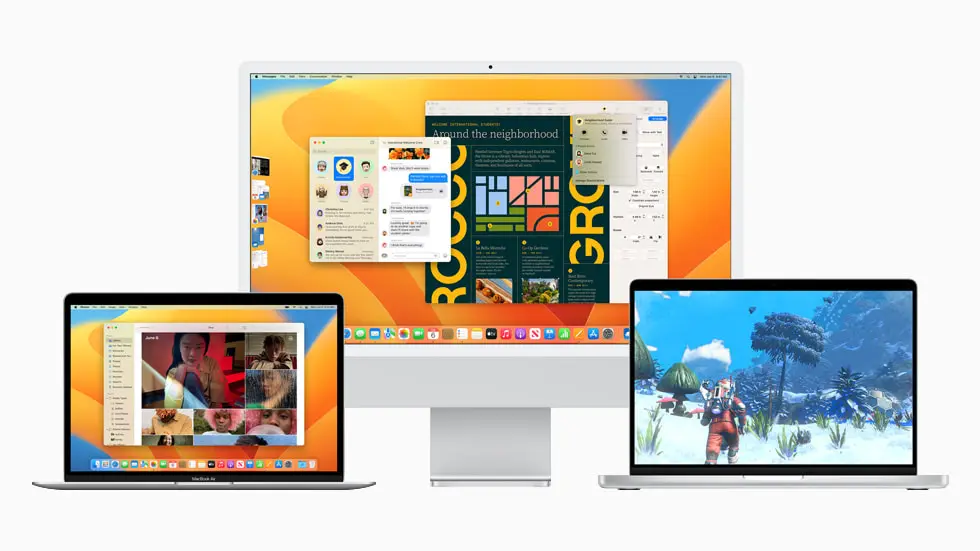
Windows 12 vs macOS Ventura: Feature Comparison and Which to Choose
0 Posted By Kaptain KushIn the ever-evolving world of operating systems, the debate between Windows 12 and macOS Ventura continues to captivate users seeking the best blend of productivity, security, and innovation.
As Microsoft prepares to launch Windows 12 in late 2025, packed with AI-driven enhancements, it stands poised to challenge Apple’s macOS Ventura—a 2022 release renowned for its seamless multitasking and creative tools.
Trending Now!!:
- Android 16 vs iOS 19: Key Differences and User Experience
- Delta Goodrem Biography: Husband, Children, Age, Net Worth, Parents, Songs, Height, Manager
- Kid Cudi Marries Lola Abecassis Sartore Days After Testifying Against Diddy
- Adam Pally Biography: Age, Wife, Parents, Net Worth, Nationality, Children, Height, Wikipedia, Movie
- David Freiburger Biography: Age, Wife, Net Worth, Height, Parents, Siblings, Children
Whether you’re upgrading from an older PC, switching ecosystems, or simply weighing Windows vs macOS for your next device, this in-depth comparison breaks down key features, performance, and real-world usability to help you decide which operating system reigns supreme.
A Quick Overview
Windows 12, codenamed “Hudson Valley,” builds on the foundation of Windows 11 with a heavy emphasis on artificial intelligence and modular design.
Expected to roll out in fall 2025 alongside a new wave of Copilot+ PCs, it promises a refreshed interface and deeper integration with hardware like Neural Processing Units (NPUs) for on-device AI processing.
This makes it ideal for power users who demand versatility across gaming, work, and creative tasks.
macOS Ventura, on the other hand, marked Apple’s push toward refined productivity with features like Stage Manager for window organization and Continuity Camera for effortless device syncing.
While it’s now a few years old, Ventura’s stability and optimization for Apple Silicon (M1 and later chips) keep it relevant for professionals in design, video editing, and content creation. Its UNIX-based architecture ensures smooth performance on Macs, often outlasting comparable Windows hardware in battery life and efficiency.
Both OSes are free upgrades for eligible devices, but their philosophies differ: Windows 12 embraces broad hardware compatibility and customization, while macOS Ventura prioritizes a polished, ecosystem-locked experience. Let’s dive into the specifics.
User Interface and Multitasking
When it comes to the user interface design that defines daily interaction, macOS Ventura shines with its minimalist aesthetic and intuitive gestures.
The Dock remains a hallmark of quick app access, and new additions like customizable Lock Screens with widgets add a personal touch without overwhelming the screen.
Stage Manager revolutionizes multitasking by grouping apps into focused “stages” on the side of the display, allowing seamless switching between workflows—perfect for creatives juggling Adobe Suite tools or Final Cut Pro timelines.
Windows 12 counters with a more dynamic, AI-infused approach to multitasking possibilities. Rumored to introduce a floating Taskbar and a unified top bar, it expands on Windows 11’s Snap Layouts with enhanced AI-powered window suggestions.
Imagine hovering over your taskbar to preview adaptive grids that automatically arrange apps based on your habits, or a new Timeline feature that recalls past sessions with contextual AI summaries. This makes Windows 12 feel more responsive for heavy multitaskers, especially on touch-enabled devices where gestures rival iPadOS fluidity.
In head-to-head tests from recent benchmarks, macOS Ventura edges out in gesture-based navigation—trackpad swipes feel buttery smooth on a MacBook—while Windows 12’s modular UI offers greater customization, letting you tweak themes and layouts to match your workflow.
If ease of use for beginners is key, Ventura’s consistency wins; for power users craving adaptability, Windows 12’s innovations tip the scale.
AI and Productivity Features
AI integration is where Windows 12 truly flexes its muscles, positioning it as a frontrunner in the race toward intelligent computing.
Building on Copilot, the upcoming OS introduces advanced features like AI-enhanced search that anticipates your needs, real-time video upscaling for crisp 4K playback, and live wallpapers with parallax effects generated on the fly.
Enhanced Microsoft 365 tools, such as AI-powered summaries in Word and OneDrive, streamline collaboration. At the same time, the “Click to Do” feature uses natural language to automate tasks like “resize this image for Instagram.”
macOS Ventura, while not as AI-heavy, excels in practical productivity enhancements. The revamped Mail app with Undo Send and scheduled emails tackles inbox overload head-on, and Messages gains richer search for quick thread retrieval.
Continuity features like Handoff for FaceTime—seamlessly transferring calls between iPhone, iPad, and Mac—create an unmatched ecosystem for Apple loyalists. Plus, the expanded Home app and multiple-stop Maps routing add everyday utility without bloat.
For productivity apps, both shine in their niches: Windows 12’s broad compatibility supports enterprise tools like enterprise-grade Excel add-ons, while Ventura’s native apps (e.g., Photos with AI-like object removal) cater to creatives.
If you’re in a Microsoft 365-heavy environment, Windows 12’s AI boosts efficiency by 20-30% in document handling, per early leaks. Ventura, however, feels more “set it and forget it” for solo creators, with fewer interruptions from updates.
Performance and Hardware
In terms of performance optimization, macOS Ventura leverages Apple Silicon for exceptional battery life—up to 18 hours on a MacBook Air—and thermal efficiency, making it a champ for mobile workflows.
Benchmarks show Ventura handling 4K video exports 15% faster than equivalent Windows setups, thanks to Metal 3’s graphics acceleration and seamless app optimization.
Windows 12, optimized for Copilot+ PCs with NPUs, promises snappier AI tasks and improved ARM support for longer battery on Snapdragon devices. However, its broader hardware ecosystem means variability: a high-end Dell XPS with Intel Core Ultra might match a Mac Studio’s speed, but budget PCs lag.
Gaming performance is a clear Windows win—DirectX 12 Ultimate and Auto HDR deliver frame rates macOS can’t touch, with thousands more titles available via Steam.
Security is another battleground. macOS Ventura’s closed ecosystem and features like Rapid Security Responses provide robust protection with minimal user intervention, reporting fewer vulnerabilities than Windows.
Windows 12 counters with TPM 2.0 mandates, Pluton chips, and AI-driven threat detection, but its open nature invites more risks—though Microsoft claims a 25% drop in exploits via proactive updates.
Software Compatibility and Ecosystem
App compatibility is Windows 12’s superpower, supporting legacy software, Android apps via WSA, and a vast library of 73% global market share titles.
From enterprise CRM to niche engineering tools, it’s unmatched for businesses.
macOS Ventura thrives in Apple’s walled garden, with passkeys in Safari paving the way for passwordless logins and tight iOS integration. However, its 15% market share limits options—many pro apps require workarounds like Parallels for Windows emulation.
Ecosystem-wise, Ventura’s Continuity (e.g., using iPhone as a webcam) fosters a “one Apple” harmony, while Windows 12’s Phone Link expands to more Android devices but lacks iOS polish.
Cost and Accessibility
Windows PCs start at $300 for entry-level laptops, scaling to $3,000+ workstations—offering hardware variety that macOS can’t match. Macs begin at $999, but their longevity justifies the premium for many.
Which Operating System Should You Choose?
Ultimately, the Windows 12 vs macOS Ventura verdict hinges on your needs. Choose Windows 12 if you’re a gamer, enterprise user, or budget-conscious multitasker craving AI smarts and endless customization—its fall 2025 debut could redefine versatile computing.
Opt for macOS Ventura if you prioritize intuitive design, creative workflows, and Apple ecosystem bliss; it’s a timeless pick for stability on the go.
In the grand Mac vs Windows showdown, neither is “better“—they’re tailored triumphs. As Windows 12 launches amid Windows 10’s end-of-life, now’s the time to assess your setup.
Whichever path you take, both elevate desktop experiences in profound ways. What will be your next OS move?


